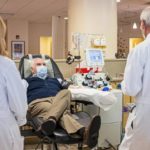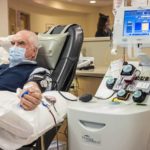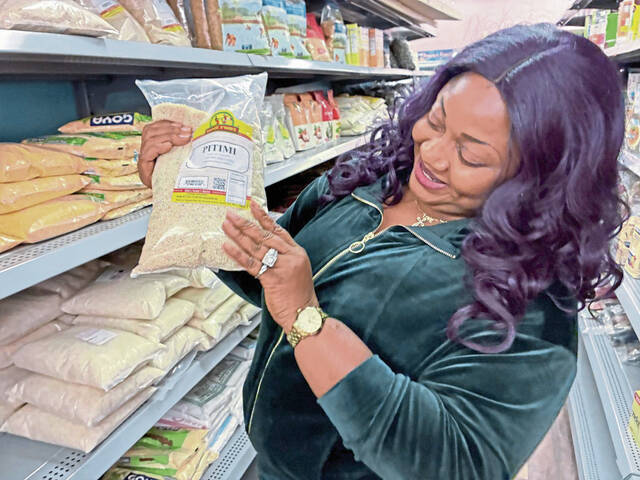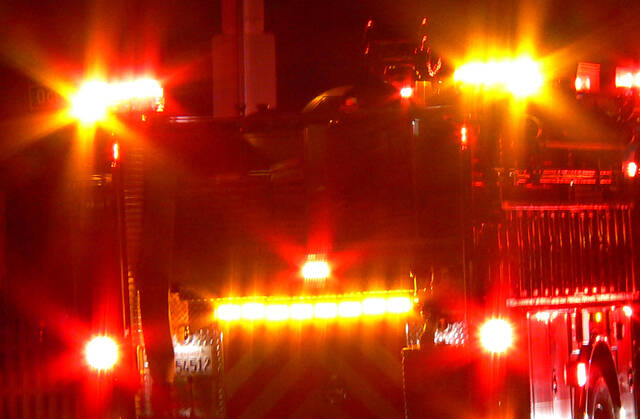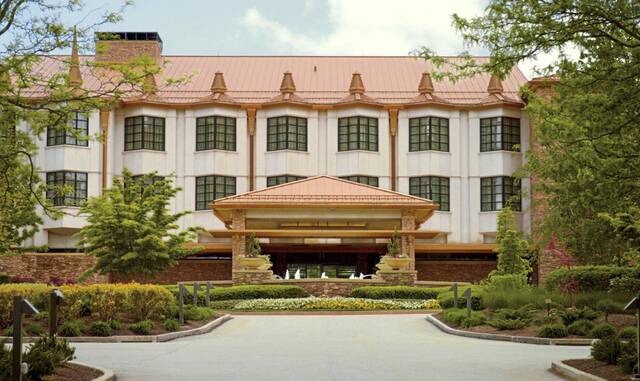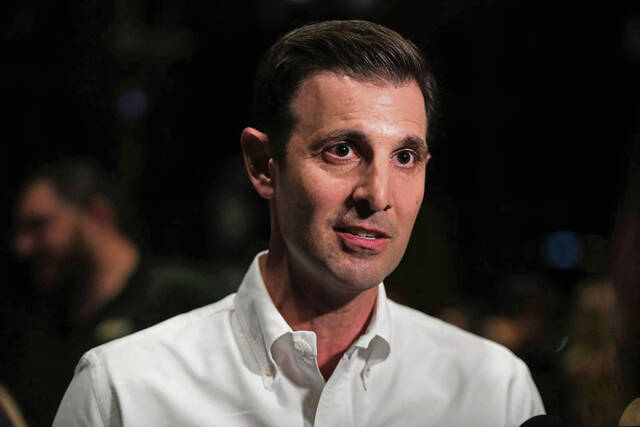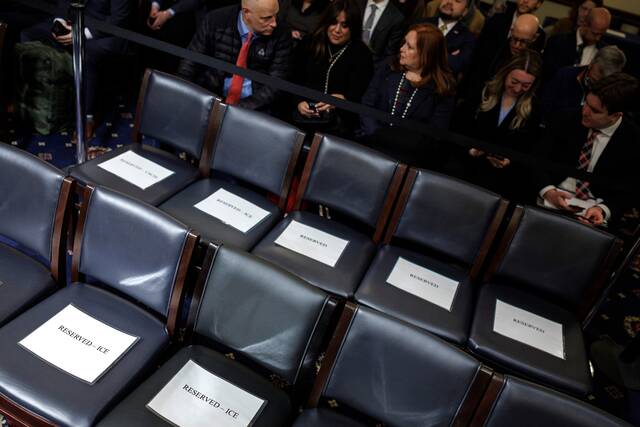U.S. Rep. Mike Kelly is grateful that he beat covid-19 without getting so sick or short of breath that he had to be hospitalized.
But the affliction was not like any flu or illness the Butler Republican he’d experienced before.
For weeks, Kelly, 72, felt debilitatingly exhausted. He had persistent chills, severe headaches and unusual muscle spasms in his neck and upper back.
Even between bouts of nausea, Kelly found it difficult to eat. All he could stomach was water and applesauce.
“I lost my sense of smell, and anything I ate, it had a terrible taste to it,” said Kelly, who tested positive for covid-19 on March 27, based on a nasal swab test taken at a drive-up testing site at Butler Memorial Hospital.
In less than eight days, he lost about 30 pounds. Kelly and longtime friend and former Steelers quarterback Terry Hanratty, who had a six-day hospital stay before overcoming his own battle with covid-19, joked on phone calls how they both had dropped to what they weighed as ninth-graders at Butler High School.
Kelly didn’t have persistently high fevers or severe respiratory issues like many others with the disease have, but he felt tired all the time and slept as much as he could. His balance was off, and he had to stop to catch his breath to make it up or down the stairs of his early 20th century home.
Kelly laments that other covid-19 patients have gone through far worse or lost their lives — particularly those with underlying conditions and weak immune systems.
So, soon after learning that he could participate in a novel treatment approach to combat the pandemic, Kelly pounced on the chance.
Covid-19 survivors urged to donate plasma
This week, Kelly became among the first several dozen volunteers in Western Pennsylvania to recover from covid-19 and donate their plasma — in hopes it contains antibodies that could help other coronavirus patients get better faster.
The convalescent plasma treatment is a technique not proven for coronavirus but successfully used to fight off outbreaks of measles and influenza.
“We do have some early indications from the thousands of patients across the country that have been treated that it appears to be a pretty safe therapy,” said Dr. John McDyer, director of lung transplant research at UPMC and lead investigator on the regional plasma transfusion project. “But we still have to work to do to figure out if it is an effective therapy.”
Officials are encouraging anyone who has tested positive and recovered from covid-19 to reach out to help build the inventory — which will be necessary to better prepare for possible second or third “waves” of covid-19 in the fall and winter, McDyer said.
For Kelly, a health screening at one of UPMC’s Oakland facilities followed by a blood-drawing session at a lab in Green Tree amounted to a relatively simple and comfortable process that he couldn’t turn down.
“If I can spend an hour and a half or two ours out of my life, and maybe something develops from that that saves the lives of other people, what an easy thing to do,” said Kelly, whose 16th Congressional District stretches from Erie to the northern suburbs of Pittsburgh, including Butler County.
Video courtesy of UPMCAnd Kelly’s not done donating.
As he prepared to leave Vitalant’s Green Tree lab after his first donation on Monday, he asked workers, “How often can I do this?”
When told he could come back as soon as a week to donate up to four more units, Kelly replied, “Are you serious? OK, book me … I’ll be back here next Monday, and I’m bringing donuts.”
‘The multiplier effect’
McDyer, who was there for Kelly’s recent donation, said that recovered covid-19 patients can donate plasma every week for up to two months.
“He’s (Kelly) a great case for our efforts, because his willingness to not only donate this plasma Monday but also his willingness to come back and donate multiple times, there’s a multiplier effect — one plasma donor can have far-reaching positive effects on this pandemic,” McDyer said.
Each typical donation amounts to about four units, but patients usually only get one to two units during a transfusion, McDyer said. That means a single donation can provide enough plasma to treat two to three patients.
To participate, volunteers must have tested positive for covid-19 and been free of symptoms for at least four weeks. They must then test negative for the disease via a swab test, and positive for the desired antibodies.
The greater Pittsburgh region has built up an inventory of about 150 units of plasma, with another 50 donors in the process of being cleared to give donations.
About 30 patients in UPMC’s hospital system have received the transfusions, along with about 7,000 patients nationwide, according to McDyer.
Buoyed by expedited FDA approvals, both UPMC and Allegheny Health Network systems are participating in a national trial to treat covid-19 patients in partnership with Vitalant, which manages more than 125 blood donation centers nationwide. McDyer said the UPMC trial tests the safety of the units on hospitalized patients before delivering plasma to providers for wide use.
In addition to clinical trials, plasma transfusions also are being used at the discretion of doctors on covid-19 inpatients with moderate to severe respiratory problems, made possible via the “compassionate care” allowance in place during the pandemic.
Goal: Help get sick patients better faster
Plasma transfusions to treat sick patients date back to the 1918 flu pandemic and other outbreaks since, from measles to the 20TK SARS outbreak and H1N1 virus.
The goal is passive immunity, or “taking immunity from one person and transferring it to another.”
“It’s different than an anti-viral medication that goes directly after the virus, itself,” he said.
“The antibodies that we think are working biologically against the covid-19 virus are called neutralizing antibodies. They bind the virus and they block the virus from entering cells.”
Results of an uncontrolled study in China and published in the JAMA medical journal showed some severely ill patients on ventilators improved after receiving convalescent plasma. McDyer said the findings are promising but would have to be proven by traditional controlled studies.
Anecdotally, in the UPMC system in recent weeks, “some patients have had a really remarkable, rapid recovery that was unexpected,” McDyer said.
There’s also still more to learn about antibodies in terms of covid-19.
As many as 1 in 4 patients who tested positive for covid-19 may not have antibodies at all, early research suggests.
At least two strains have been identified, and some experts have suggested the virus could “evolve over time,” McDyer said. It’s unclear precisely when is best to administer the plasma, or whether someone who had more severe symptoms might have stronger and more antibodies than someone with milder ones.
“The quantity and quality of those neutralizing antibodies may vary,” McDyer said. “Imagine that it’s a pill you’re given, but you don’t quite know the dose of the pill.”
If successful, the treatment could provide relief as scientists and doctors worldwide scramble to identify possible treatments and race to develop a safe vaccine.
“This is so important because we don’t know what direction this pandemic is going,” McDyer said. “… You really can’t let your guard down. We have to prepare for the worst-case scenario.”
Potential plasma donors can email c2p3@upmc.edu or call 412-647-9779.




